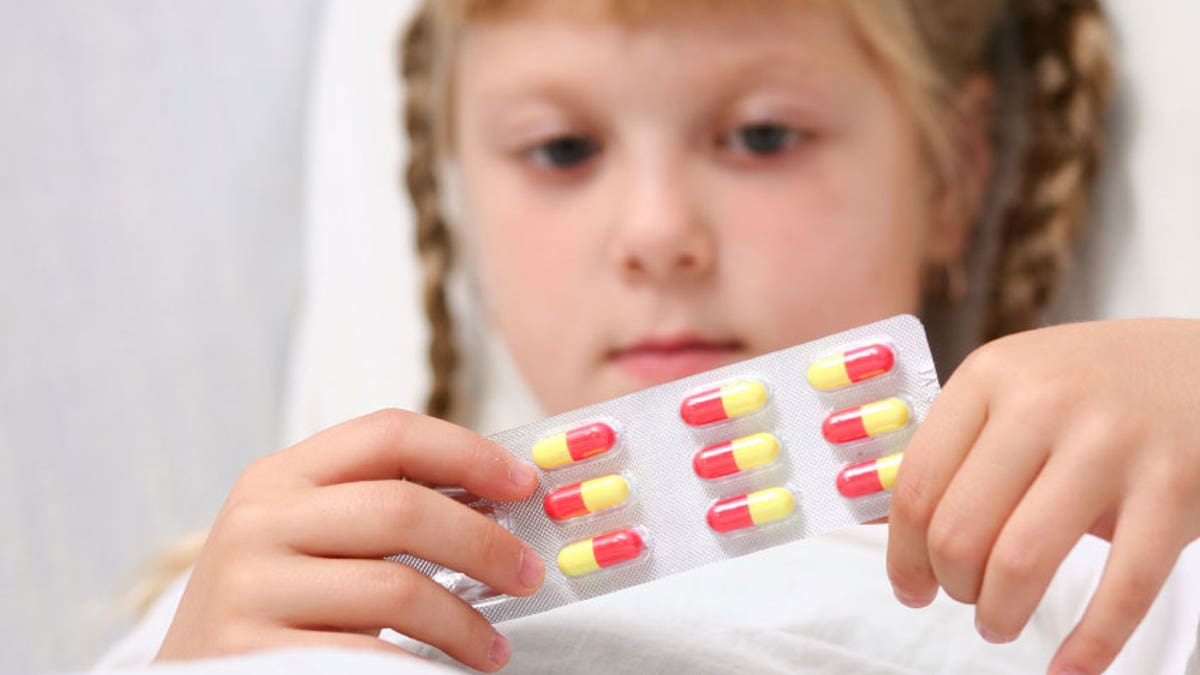
When your child is miserable with seasonal allergies, a cold, or even just a bug bite, all you want to do is make it better. Yet many of the common over-the-counter products used to treat kids’ ailments can be downright dangerous.
Here, experts weigh in on the side effects and warnings of these remedies and offer safer alternatives.
1. Antihistamines and decongestants
With the “pollen tsunami” in full force this allergy season, you may be tempted to give your child an antihistamine or a decongestant. Although both can help to relieve symptoms, antihistamines can cause drowsiness and constipation and decongestants can make your kid hyperactive. Plus, eye drops for watery, itchy and red eyes contain chemical vasoconstrictors, which reduce the blood vessels and can actually cause burning and irritation.
Instead, try a saline nasal spray or saline drops for infants which will help to wash pollen out of the sinus cavity and clear up mucus and congestion, said Sherry Torkos, a holistic pharmacist based in Fort Erie, Ontario and author of “The Canadian Encyclopedia of Natural Medicine.” A neti pot with a few drops of eucalyptus essential oil and homeopathic eye drops like those made using euphrasia, an herb, can help too.
Also, quercetin, a bioflavonoid found on the white part of oranges and other fruits can help ease symptoms.
“It’s very stabilizing to the mast cell in our body, which is what contains our histamine,” said Pina LoGiudice, a naturopathic doctor and licensed acupuncturist with Inner Source Health based in New York City.
2. Sunscreen
Sunscreen is non-negotiable but many contain chemicals that are absorbed into the blood stream and have been shown to disrupt hormones and cause allergic reactions.
Instead, look for mineral-based sunscreens with zinc oxide or titanium dioxide. “They act as a repellent to the sun’s rays, creating a physical barrier rather than a chemical one,” Torkos said. Plus, a hat, sunglasses and sun protective clothing with UPF are always a good idea.
3. Laxatives
Up to 30 percent of children suffer from constipation, according to The American Journal of Gastroenterology. It’s also one of the most common reasons parents look for an over-the-counter remedy like laxatives. Yet when used frequently, laxatives can cause a “lazy colon,” which makes the body dependent on medication in order to stimulate the intestines to have a bowel movement, Torkos said.
One of the primary culprits of constipation is diet and most kids are not getting enough fiber-rich foods to make them go. Sure, kids are picky eaters but try to find new ways to get plenty of vegetables, fruits, beans and legumes, whole grains and plenty of water in their diet. Studies show eliminating dairy can help too, but make sure your child is getting enough calcium-rich foods. If constipation persists, Sunfiber, a clear, tasteless and odorless fiber supplement can fill the void.
4. Hydrocortisone
Hydrocortisone is a steroid used for insect bites, skin irritations and allergic reactions but it can actually cause skin to itch, burn, become dry, or even change color.
Nix the chemicals and make a paste of baking soda, water and a few drops of tea tree oil, which is antiseptic and will take away the sting and itch. To prevent bites, look for insect repellants with essential oils like neem oil or citronella.
5. Cold and cough medicine
In 2007, the FDA issued an advisory stating children under 2 years old shouldn’t use cold and cough medications because they’re not effective and they could be life-threatening. Plus, many have color dyes which have been linked to behavioral issues and ADD and ADHD. Nevertheless, many pediatricians still recommend them, LoGiudice said.
For children over age 1, one of the most effective remedies is dark amber honey which soothes the throat. There are also homeopathic remedies or over the counter botanicals that can help as well. Speak to a naturopathic doctor or homeopath about which one is best.
6. Fever reducers
Aspirin, acetaminophen and ibuprofen can cause liver and kidney damage, ringing in the ears, stomach bleeding, headaches and hair loss. Plus, aspirin use has been linked to Reye’s syndrome, a rare condition that can cause swelling in the liver and brain. Studies also show that acetaminophen can prolong an illness.
For infants with fever, always call a doctor. For older children, if you decide to use a fever reducer, check with your doctor first to make sure it’s safe and the dosage is correct. Or depending on the temperature simply let the illness run its course.
“It’s not about shutting down the symptoms, [rather] it’s supporting the immune system so that the child can get over the cold or kill that virus much sooner,” LoGiudice said.








































